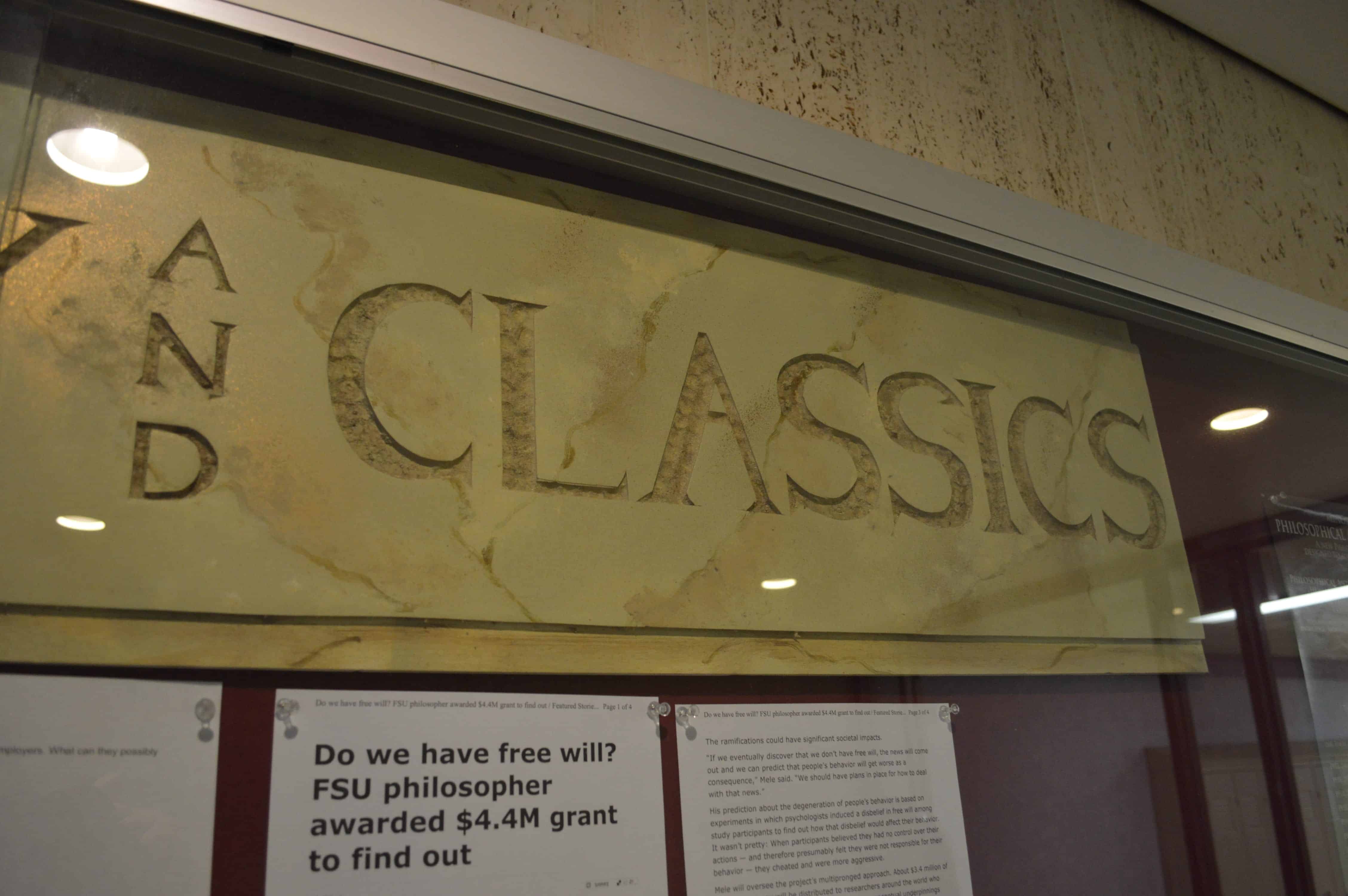Classically brilliant

You can’t go wrong by going old school.
Author: Neil Middlemiss
For centuries in Europe and North America, being grounded in Latin, Ancient Greek, and Classical literature was considered essential to university education. Today’s university, however, looks quite different. On the one hand, never have so many students had access to such a quality education. On the other hand, most students see a university education as a path to a job first and foremost, and they don’t see how ancient cultures are relevant to that end. Both of these latter views are mistaken.
The ancient cultures of Greece and Rome are an incredibly rich area of research and it is not a coincidence that universities have historically provided such fertile ground for the study of Classical texts. To summarize very hastily: ancient Greek philosophers asked questions about the nature of justice, wisdom, and the good; the foundations of math, science, and history are equally traced back to the Greeks; the Romans reached great engineering and technological heights; and both cultures exhibited some of the finest art, architecture, and literature in our history. Careful, reasoned consideration of each of these areas is essential to an education that is meant to be more than mere training.
As a study of historical feats, Classics is a tremendously interesting field, but it also continues to speak to us today through its broad range of topics and pervasive iconography. The Saskatchewan Legislature Building intentionally makes reference to the Parthenon, alluding to the connection between modern democracy and its earliest manifestations in Athens. More interesting still, the Parthenon was built with impressive geometric proportion and mathematical understanding that metaphorically links human knowledge to Athena, the goddess of wisdom to whom the temple was dedicated. In a single building, one can see themes of math, art, architecture, religion, politics, anthropology, and more. Recognizing these links is a life-enriching experience, if only by showing us some degree of relation between ourselves and distant individuals or cultures. There is a lesson for contemporary living even in such a trivial observation.
A fundamental aim of university is to help shape you into an informed citizen capable of reasoning independently and contributing positively to your society. The Classics department can offer this and they have a pretty good professor to boot. I’m not a Classics major, but I’ve taken two courses in Latin and traveled to on a student trip to see these connections first hand. I don’t regret it at all.
Nonetheless, the increasing focus on job-readiness is understandable and seems to be a horrible consequence of the increasing cost of tuition. If you’re still not convinced to take some more Classics, you should know that Classics majors are relatively successful after graduation. Classics majors are high performers on the LSAT and the GRE, which leads them to a high rate of acceptance into law school and graduate school. Classics majors also have a surprisingly high rate of acceptance into medical schools. Even if you don’t plan to move on to further study, Classics will give you a reflective aptitude that is very broadly applicable in “the real world” and will also make your four years in university far more intellectually fulfilling than most other classes or programs. You can’t lose.








